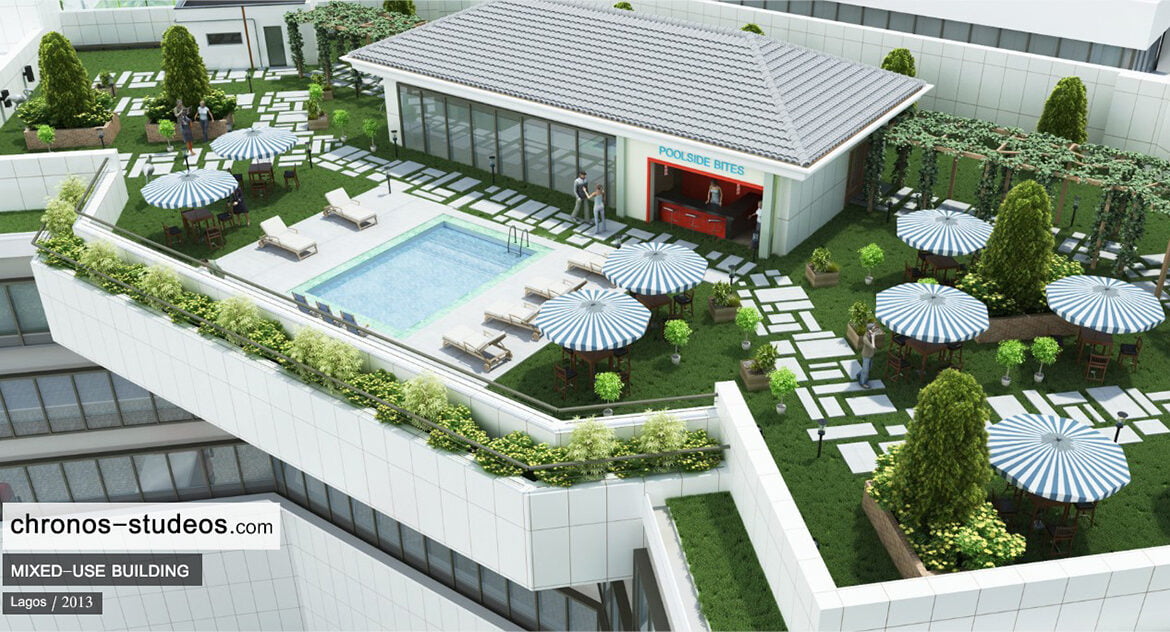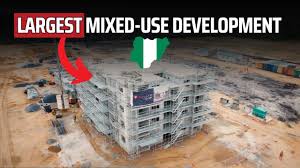


Mixed-use development projects are gaining momentum in Nigeria, driven by the need for efficient land use and integrated urban environments. These projects combine residential, commercial, and recreational spaces within a single development, offering numerous benefits such as reduced commuting, enhanced community interaction, and increased economic activity. However, the complexity of mixed-use developments introduces a range of legal aspects that stakeholders must navigate to ensure successful project execution. This article explores the key legal considerations associated with mixed-use development projects in Nigeria, providing insights into regulatory compliance, contractual obligations, and risk management.
Understanding Mixed-Use Developments
Mixed-use developments integrate different types of spaces within one project, typically including residential, commercial, office, and recreational facilities. This approach promotes efficient land use and vibrant, multifunctional communities. The benefits include:
- Enhanced Convenience: Residents and businesses enjoy the convenience of living, working, and playing in the same vicinity.
- Economic Growth: Mixed-use developments stimulate economic activity by attracting businesses, tourists, and residents.
- Urban Revitalization: They contribute to the rejuvenation of urban areas, improving infrastructure and public spaces.
Key Legal Aspects of Mixed-Use Development Projects in Nigeria
1. Land Use and Zoning Regulations
Land use and zoning regulations are critical in mixed-use development projects. These regulations determine how land can be used and dictate the permissible types of development within specific areas. Key considerations include:
Zoning Laws: Nigerian cities have zoning laws that designate areas for specific uses, such as residential, commercial, or industrial. Mixed-use developments must comply with these zoning regulations to ensure that the project fits within the designated land use category.
Rezoning Applications: In some cases, developers may need to apply for rezoning or variances to accommodate mixed-use projects. This process involves submitting detailed plans and justifications to local planning authorities.
Understanding and adhering to zoning laws is essential for securing approvals and avoiding legal disputes related to land use.
2. Environmental Impact Assessments (EIAs)
Environmental Impact Assessments (EIAs) are required to evaluate the potential environmental effects of mixed-use development projects. Key aspects include:
- EIA Process: The EIA Act mandates that projects assess their potential impact on the environment, including aspects such as air quality, water resources, and noise levels. Developers must conduct a thorough assessment and submit an EIA report to regulatory authorities.
- Mitigation Measures: The EIA report should outline measures to mitigate adverse environmental impacts, such as implementing green building practices and managing waste effectively.
Conducting an EIA ensures that mixed-use developments meet environmental standards and contribute to sustainable urban growth.
3. Building Codes and Standards
Building codes and standards govern the design, construction, and safety of buildings within mixed-use developments. Key considerations include:
- Compliance with Codes: Mixed-use developments must comply with national and local building codes, which set standards for structural integrity, fire safety, accessibility, and energy efficiency. Non-compliance can result in fines, delays, or even project shutdowns.
- Integrated Design: Given the diverse functions within a mixed-use development, ensuring that the design meets the requirements for all intended uses is crucial. This includes adhering to safety standards for residential areas, commercial spaces, and public facilities.
Adhering to building codes and standards is vital for ensuring the safety, functionality, and legal compliance of mixed-use developments.
4. Property Rights and Ownership
Property rights and ownership issues are central to mixed-use developments, particularly when multiple stakeholders are involved. Key aspects include:
- Title Deeds and Land Ownership: Ensuring clear and undisputed land ownership is essential for project execution. Developers must verify that the land title is legitimate and free of encumbrances.
- Joint Ventures and Partnerships: Mixed-use projects often involve partnerships between developers, investors, and local authorities. Clearly defined agreements and legal documentation are necessary to manage property rights and responsibilities among stakeholders.
Proper management of property rights and ownership issues helps prevent disputes and facilitates smooth project execution.
5. Regulatory Approvals and Permits
Regulatory approvals and permits are required for various stages of mixed-use development projects. Key permits include:
- Construction Permits: Developers must obtain construction permits from local authorities before starting work. These permits confirm that the project complies with zoning laws, building codes, and other regulations.
- Occupancy Permits: After construction, an occupancy permit is required to ensure that the building is safe for use. This permit confirms that the development meets all safety and regulatory requirements.
Securing the necessary permits and approvals is crucial for legal compliance and project success.
6. Contractual Obligations and Agreements
Contractual obligations and agreements play a significant role in mixed-use development projects. Key contracts include:
- Development Agreements: These agreements outline the terms and conditions of the development project, including responsibilities, timelines, and financial arrangements. They help manage expectations and ensure that all parties are aligned.
- Lease Agreements: For mixed-use projects with commercial spaces, lease agreements define the terms of rental agreements with tenants. These agreements should address issues such as rent, maintenance, and tenant rights.
Effective contractual management helps mitigate risks and ensures that all parties fulfill their obligations.
7. Dispute Resolution Mechanisms
Dispute resolution mechanisms are essential for addressing conflicts that may arise during mixed-use development projects. Key mechanisms include:
- Arbitration and Mediation: These alternative dispute resolution methods offer a less formal and often faster way to resolve conflicts compared to litigation. They involve neutral third parties who help facilitate negotiations and settlements.
- Contractual Clauses: Including dispute resolution clauses in contracts can specify the preferred methods for resolving disputes and outline procedures for addressing conflicts.
Implementing effective dispute resolution mechanisms helps manage conflicts and maintain project momentum.
Case Studies of Mixed-Use Developments in Nigeria
1. The Eko Atlantic City Project
The Eko Atlantic City Project in Lagos is a prominent example of a mixed-use development that integrates residential, commercial, and recreational spaces. Key legal aspects include:
- Zoning and Land Use: The project required rezoning and compliance with zoning regulations to accommodate its diverse functions
- Environmental Impact: An extensive EIA was conducted to address the environmental impacts of constructing a new city on reclaimed land.
The Eko Atlantic City Project highlights the importance of navigating zoning laws and environmental regulations in large-scale mixed-use developments.
2. The Landmark Village Development
Landmark Village in Lagos features a mix of residential, office, and retail spaces. Key legal aspects include:
- Building Codes: The project adhered to building codes and standards for safety and functionality across its various components.
- Contractual Agreements: The development involved multiple stakeholders, including developers and investors, necessitating detailed contractual agreements to manage property rights and responsibilities.
Landmark Village demonstrates the integration of diverse legal considerations in mixed-use development projects.
Conclusion
Addressing the legal aspects of mixed-use development projects in Nigeria is essential for ensuring successful project execution and compliance with regulatory requirements. Key considerations include land use and zoning regulations, environmental impact assessments, building codes and standards, property rights, regulatory approvals, and contractual obligations. By understanding and managing these legal aspects, developers can navigate the complexities of mixed-use projects, mitigate risks, and contribute to the creation of vibrant and functional urban environments. As Nigeria continues to embrace mixed-use development as a solution for urban growth, effective legal management will be crucial for achieving sustainable and successful outcomes.
· Mixed-Use Development
· Zoning Regulations
· Environmental Impact Assessment (EIA)
· Building Codes
· Property Rights
· Land Ownership
· Construction Permits
· Occupancy Permits
· Development Agreements
· Lease Agreements
· Dispute Resolution
· Arbitration
· Urban Revitalization
· Joint Ventures
· Sustainable Urban Growth
Contact Us
Chaman Law Firm today. Our offices are conveniently located in Lagos, FCT Abuja, Ogun State, and the UK. We are readily available to assist you with your legal needs. Whether you require consultation, representation, or ongoing legal support, Chaman Law Firm is your trusted partner.
Call us at 08065553671 or email us at info@chamanlawfirm.com to schedule a consultation.

